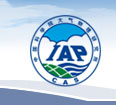| Abstract The UN and EU, through negotiations is working towards a 2°C target in average global warming. For impacts and adaptationpurposes however, local increases in temperature are far more important – especially during heatwaves. An adaptation policy for a city based on a premise that a 2°C global increase will give a 2°C increase locally is likely to be disastrous if the actual local warming is much greater. To objectively determine regional changes and their uncertainty in a 2°C warmer world however is surprisingly difficult. Multi-model ensembles (eg CMIP3,5) can be used. However, these are often too small and rather adhoc in nature. Large differences in structure between their constituent models also complicate the determination of mechanisms which contribute to the overall uncertainty. An alternative approach, first pioneered at the Met Office in 2003 is based on perturbed parameter ensembles. To form these, experts were consulted to determine the plausible uncertainty ranges of 25 model parameters in the Met Office’s climate model HadCM3. By simultaneously perturbing these parameters, a 240 member ensemble of control and doubled CO2 HadCM3 projections was thus produced. We extract the ensemble runs which give 2.0±0.5 °C global increases and explore the local uncertainty within these runs of changes to hot days and heatwaves. The talk will show how the uncertainty in soil moisture changes dominates the uncertainty in future local temperature extremes. The relative merit of the runs giving the greatest temperature increases will also be considered. A simple method for determining the most dominant perturbed parameters will also be shown with results. For Europe, the role of changes in circulation on heatwaves will also be considered. An overview of several additional perturbed parameter ensembles at the Met Office will also be presented. | 




